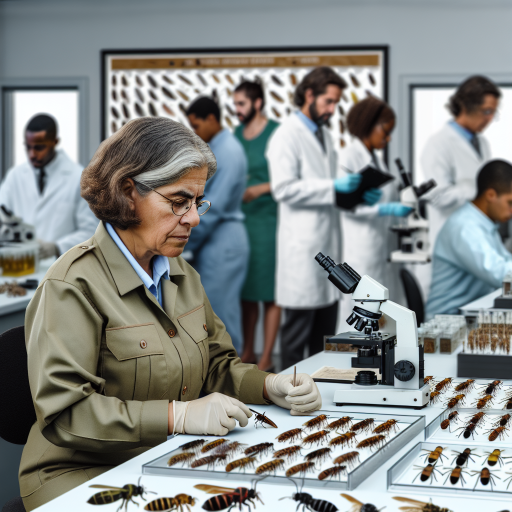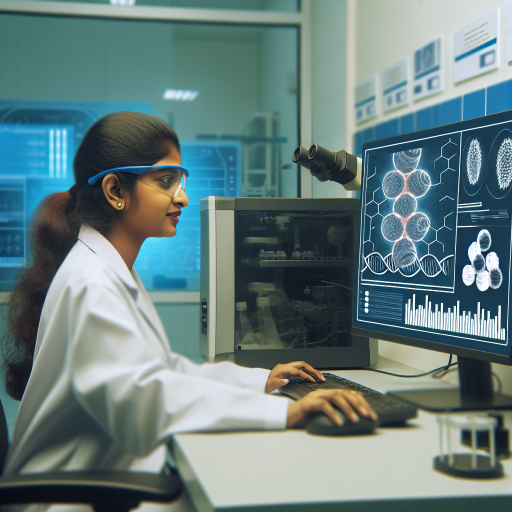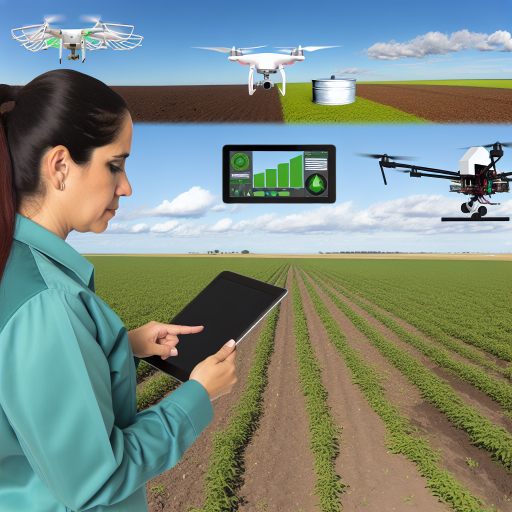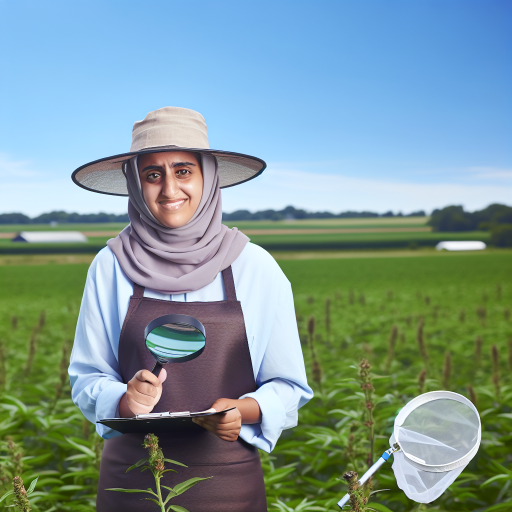Introduction:
In the ever-evolving poultry industry, understanding the importance of poultry science is crucial.
Poultry science encompasses various aspects of poultry production, including nutrition, genetics, health, and management.
As one of the fastest-growing segments of agriculture, the poultry industry plays a vital role in meeting the global demand for protein.
Poultry products are not only a staple in many diets but also provide essential nutrients and are a cost-effective source of protein.
History of Poultry Science:
When we talk about the history of poultry science, it’s essential to understand the origins of domesticated poultry and how this field has evolved over the years.
Origins of Domesticated Poultry:
- Ancient civilizations such as the Egyptians and Romans were among the first to domesticate poultry for food.
- Wild birds were initially captured and kept in captivity for their eggs, meat, and feathers.
- The process of selective breeding began as people realized they could improve certain traits in poultry species.
- Various breeds of chickens, ducks, geese, and turkeys were developed to enhance productivity and adaptability.
- Early domestication efforts focused on creating birds that could thrive in different climates and environments.
Evolution of Poultry Science over the Years:
- As the demand for poultry products grew, so did the need for scientific advancements in this field.
- The 19th and 20th centuries saw significant progress in poultry science with the establishment of research institutions.
- Scientists began studying genetics, nutrition, diseases, and management practices to improve poultry production.
- Technological innovations such as artificial insemination and incubation revolutionized the poultry industry.
- Poultry science became a multidisciplinary field, incorporating aspects of biology, genetics, nutrition, and economics.
Today, poultry science plays a crucial role in ensuring sustainable and efficient poultry production worldwide.
Researchers continue to explore new technologies and techniques to meet the growing demand for poultry products while minimizing environmental impacts and ensuring animal welfare.
Technological Advancements in Poultry Farming
In recent years, the poultry industry has seen significant technological advancements to improve efficiency and productivity.
Automated systems enhance operations.
Poultry farms are increasingly using automated feeding, watering, and egg collection systems.
Precision farming utilizes technology to monitor environmental factors.
This includes temperature, humidity, and lighting to enhance bird growth.
Genetic improvements are made through genomics.
Breeders are developing poultry breeds with desirable traits.
These traits include disease resistance, feed efficiency, and meat quality.
Data analytics optimizes production processes.
Farms leverage big data to predict market trends.
They also make data-driven decisions.
Sustainability Practices in Poultry Production
The poultry industry is adopting sustainable practices amid environmental concerns.
Organic farming is gaining popularity among poultry farms.
Transform Your Career Today
Unlock a personalized career strategy that drives real results. Get tailored advice and a roadmap designed just for you.
Start NowThese practices prohibit the use of antibiotics and pesticides.
Waste management systems help minimize environmental impact.
Poultry farms are implementing composting and recycling methods.
Energy efficiency technologies reduce overall energy consumption.
Poultry facilities incorporate LED lighting and solar power.
Water conservation practices are critical.
Farms use drip irrigation and rainwater harvesting.
These methods help protect local water sources and minimize usage.
The poultry industry is continuously evolving.
It meets the demands of a growing population.
At the same time, it addresses sustainability concerns.
By embracing technological advancements and sustainable practices, poultry producers secure a more efficient future for the industry.
Delve into the Subject: Effective Communication Tips for Extension Agents
Role of Genetics in Poultry Science:
Genetics play a crucial role in the field of poultry science.
It is particularly significant in the breeding and production of poultry products.
Let’s delve deeper into the significance of genetic selection in poultry breeding.
We will also explore how genetics impact the overall quality of poultry products.
Importance of Genetic Selection in Poultry Breeding:
- Genetic selection is a process that involves choosing breeding stock based on specific traits to improve desirable characteristics in the offspring.
- Poultry breeders aim to select birds with traits such as higher meat yield, egg production, disease resistance, and growth rate to enhance productivity.
- Through selective breeding, poultry scientists can create strains of birds that are better suited for commercial production, leading to increased efficiency and profitability.
- Genetic selection also plays a vital role in maintaining genetic diversity within poultry populations, which is essential for long-term sustainability.
- Advancements in genetic technologies, such as DNA sequencing and marker-assisted selection, have revolutionized the process of genetic improvement in poultry.
Impact of Genetics on the Overall Quality of Poultry Products:
- The genetics of poultry directly influence the traits that determine the quality of poultry products, including meat and eggs.
- Breeding programs that prioritize traits like meat tenderness, flavor, texture, and nutritional content can enhance the overall quality of poultry meat.
- Genetic selection for increased egg size, shell quality, and yolk color can result in higher-quality eggs that are preferred by consumers.
- Furthermore, genetics play a role in influencing the health and welfare of poultry, which can impact the safety and quality of poultry products.
- By leveraging genetic knowledge and technologies, poultry producers can continue to improve the quality, safety, and sustainability of poultry products in response to evolving consumer demands.
Gain More Insights: Understanding Rangeland Health and Its Indicators
Health and Nutrition in Poultry
When it comes to poultry farming, ensuring the health and nutrition of your birds is essential for a successful operation.
Showcase Your Business Today
Reach thousands of readers actively exploring professional services. Publish your business profile and grow your audience now.
Publish NowLet’s delve into the importance of disease prevention and proper nutrition in poultry feed.
Disease Prevention and Management in Poultry Farms
- Regular vaccinations are crucial in preventing the outbreak of common poultry diseases.
- Proper sanitation practices must be followed to prevent the spread of diseases among the flock.
- Regular health checks by a veterinarian can help in early detection and treatment of any potential health issues.
- Quarantine new birds before introducing them to the existing flock to prevent the spread of diseases.
- Implementing biosecurity measures can help in keeping the farm environment disease-free.
By prioritizing disease prevention and management on your poultry farm, you can ensure the overall health and wellbeing of your birds, leading to better productivity and profitability.
Importance of Nutrition in Poultry Feed for Optimal Growth and Development
- Providing a balanced diet rich in essential nutrients is crucial for the growth and development of poultry.
- Proteins are essential for muscle development, while carbohydrates provide energy for various activities.
- Vitamins and minerals play a vital role in maintaining overall health and immunity in poultry.
- Ensure access to clean water at all times, as it is essential for digestion and overall health.
- Consulting with a poultry nutritionist can help in formulating the right feed for different stages of growth.
By focusing on nutrition in poultry feed, you can optimize the growth, performance, and overall health of your birds.
A well-balanced diet ensures that your birds are healthy and productive, leading to a successful poultry operation.
See Related Content: Implementing Organic Farming Methods Successfully
Environmental Impact of Poultry Farming
When it comes to poultry farming, there is a significant environmental impact that comes along with it.
It is important to consider the effects of poultry farming on the environment and implement strategies for sustainable practices to minimize these effects.
Effects of Poultry Farming on the Environment
- Air Pollution: Poultry farming can contribute to air pollution through the release of ammonia and other harmful gases into the atmosphere.
- Water Pollution: Runoff from poultry farms can contaminate water sources with excess nutrients and pathogens, leading to pollution.
- Land Degradation: Overuse of land for poultry farming can lead to soil erosion, deforestation, and loss of biodiversity.
- Waste Management: Improper disposal of poultry waste can lead to nutrient accumulation in the soil and water bodies, causing pollution.
These environmental impacts pose a threat to ecosystems, wildlife, and human health.
Therefore, it is crucial to address these issues and develop sustainable practices for poultry farming.
Strategies for Sustainable Poultry Farming Practices
- Utilizing Alternative Energy Sources: Implementing renewable energy sources such as solar or wind power can reduce the carbon footprint of poultry farms.
- Water Conservation: Installing efficient water recycling systems and reducing water usage can help in minimizing water pollution from poultry farms.
- Proper Waste Management: Developing composting systems and utilizing poultry waste as fertilizer can reduce the environmental impact of poultry farming.
- Grassland Rotation: Rotating poultry pastures can prevent land degradation and soil erosion, promoting soil health and biodiversity.
- Regulatory Compliance: Adhering to environmental regulations and standards can ensure that poultry farms operate in an environmentally responsible manner.
By implementing these sustainable practices, poultry farmers can reduce the environmental impact of their operations and contribute to a healthier ecosystem for future generations.
See Related Content: Understanding Entomology Grants and Funding Opportunities

Market Trends and Consumer Preferences:
In the ever-evolving poultry industry, market trends and consumer preferences play a crucial role in shaping the direction of the market.
Understanding these trends and preferences can help businesses stay ahead of the competition and adapt to changing consumer needs.
Demand for Organic and Free-Range Poultry Products:
- One of the prominent market trends in the poultry industry is the growing demand for organic and free-range poultry products.
- Consumers are increasingly looking for products that are raised without antibiotics, hormones, or genetically modified ingredients.
- Organic and free-range poultry products are perceived as healthier and more environmentally-friendly options, driving their popularity among health-conscious consumers.
- The demand for organic and free-range poultry products has been steadily increasing in recent years, with consumers willing to pay a premium for these products.
- Poultry producers are responding to this trend by expanding their organic and free-range product offerings to meet the growing demand in the market.
- As consumers become more aware of the benefits of organic and free-range poultry products, the market is expected to continue growing in the coming years.
Changing Consumer Preferences in the Poultry Industry:
- Consumer preferences in the poultry industry are constantly evolving, driven by factors such as health concerns, ethical considerations, and sustainability.
- Consumers are increasingly looking for poultry products that are raised in humane conditions, with a focus on animal welfare and ethical farming practices.
- The rise of plant-based alternatives has also influenced consumer preferences, with some consumers opting for meat-free or meat-reduced diets for health or environmental reasons.
- Convenience is another key factor that influences consumer preferences in the poultry industry, with ready-to-cook and pre-seasoned products gaining popularity.
- Brands that prioritize transparency, traceability, and sustainability are resonating with consumers who are seeking more information about the production processes behind their poultry products.
- As consumer awareness grows and preferences shift, poultry producers are adapting their product offerings and marketing strategies to cater to changing consumer needs.
Challenges and Opportunities in Poultry Science
When it comes to poultry science, there are several challenges and opportunities that industry professionals face.
Let’s delve into some of the key aspects:
Disease Outbreaks and Biosecurity Measures:
One of the major challenges in poultry farming is the constant threat of disease outbreaks.
These outbreaks can be devastating to both the birds and the profitability of the farm.
Implementing stringent biosecurity measures is crucial to prevent the spread of diseases among poultry flocks.
Biosecurity protocols include limiting visitors, proper sanitation, and restricting access to the farm.
By investing in biosecurity measures, farmers can reduce the risk of disease outbreaks.
Ultimately, this protects the health and well-being of their poultry flock.
Regular monitoring and surveillance for signs of disease are essential to catch any potential outbreaks early.
Preventing them from spreading is key.
Opportunities for Innovation in Poultry Farming Technology:
On the flip side, the challenges in poultry science have also created opportunities for innovation in farming technology.
From automated feeding systems to advanced monitoring tools, technology is revolutionizing the way poultry farms are managed.
New advancements in poultry farming technology are helping farmers increase efficiency.
They reduce labor costs and improve overall productivity.
For example, the use of sensors and data analytics can provide real-time insights into the health and performance of the flock.
This allows farmers to make informed decisions to optimize their operations.
Furthermore, the integration of precision agriculture techniques in poultry farming is opening up new possibilities.
These techniques promote sustainable and environmentally friendly practices.
By leveraging technology, farmers can minimize waste, conserve resources, and reduce their environmental footprint.
Trends in Poultry Science and Industry Advancements
The poultry industry is evolving rapidly.
New trends and insights are shaping the way professionals approach poultry science.
Genetic advancements and sustainable practices are integral aspects of this evolution.
It is crucial for industry professionals to keep up with these developments.
Improving production efficiency, animal welfare, and overall sustainability is possible through awareness of industry trends.
By implementing new techniques, professionals can enhance their operations.
This helps maintain a competitive edge in the market.
Adopting new technologies is one strategy to stay ahead.
Showcase Your Business Today
Reach thousands of readers actively exploring professional services. Publish your business profile and grow your audience now.
Publish NowResearching innovative feed formulas is another method.
Implementing robust biosecurity measures is equally critical.
Staying informed about industry trends benefits individual businesses.
This awareness also contributes to the growth of the poultry industry as a whole.
Knowledge of trends in poultry science is essential for success in a constantly changing environment.
Embracing new ideas and practices drives progress.
Improving efficiency is a key outcome of this approach.
Ensuring the long-term sustainability of operations is paramount.
Additional Resources
IBISWorld – Industry Market Research, Reports, & Statistics
ADM: Human, Pet and Animal Nutrition Company
[E-Books for Sale]
The Big Book of 500 High-Paying Jobs in America: Unlock Your Earning Potential
$19.99 • 500 High-Paying Jobs • 330 pages
Explore 500 high-paying jobs in America and learn how to boost your career, earn more, and achieve success!
See All 500 High-Paying Jobs of this E-Book
1001 Professions Without a Degree: High-Paying American Jobs You Can Start Now
$19.99 • 1001 Professions Without a Degree • 174 pages
Discover 1001 high-paying jobs without a degree! Unlock career tips, skills, and success strategies for just $19.99!




